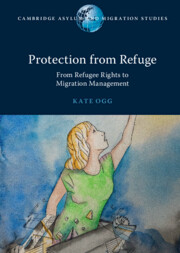Considered a landmark in feminist international politics, the Women, Peace and Security (WPS) agenda of the UN Security Council has been the object of many feminist explorations. Feminist legal scholars, however, have grappled with the ‘shadowy’ legality of the agenda, mostly analysing it as an ‘unsuccessful’ legal project: a partial or in progress legal norm, a defective legal form that attests (and furthers) the exile of inclusion of feminists in international law, or yet a formalistic discussion with lesser impact for feminist activists on the ground. Drawing from Avery Gordon’s considerations on taking shadows seriously in our production of knowledge, I propose, however, that reckoning with the shadows of the WPS’s legality enables a more comprehensive analysis of how the agenda has been a successful legal project in its own way. Offering a ‘shadow hauntology’ for the legal status of the WPS, I zoom in on the competing legality perceptions shared by relevant actors, the (gendered and colonially-continuous) shadows that have haunted those perceptions into formation, and how these competing visions have shaped the legality of the WPS as a shadow of its own. This study then offers an alternative way of studying legality both to feminist legal scholarship and studies on international legal sources more broadly. More concretely, it embraces the irresolvability of the legal status of a norm to take stock of the different legal projects and legality perceptions advanced by feminist actors and gender experts, in an effort to understand, in their own terms, the successes achieved.


